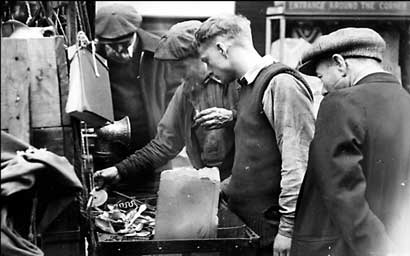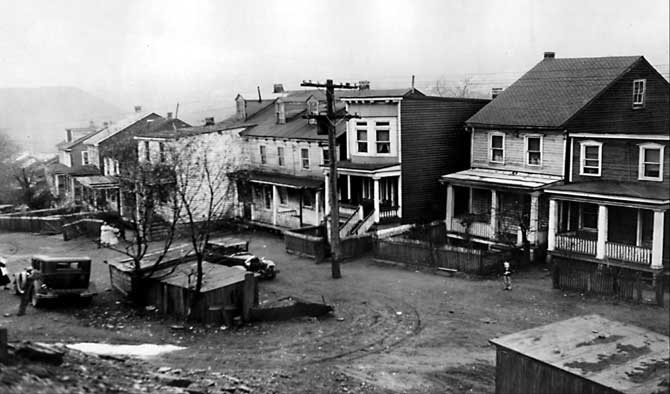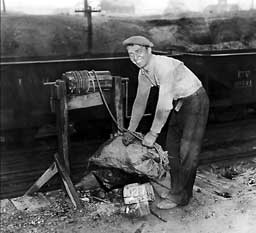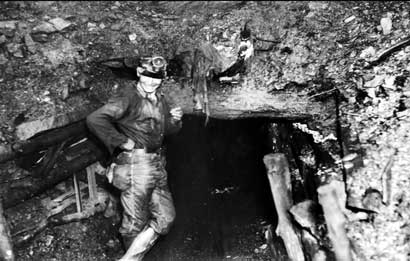The Great Depression ~ 1929–1939
Black Tuesday on Wall Street. October 29, 1929.
American veterans who served in World War One especially felt disenfranchised when
their WWI bonus money, promised to them by congress in 1924 was not paid. Called
“adjusted service certificates” of $1.25 for each day spent in the overseas service of their
country this much needed money was denied by President Herbert Hoover, stating it would
cost the Treasury $4 billion dollars. In 1931, food riots started in many metropolitan cities
where hungry people smashed grocery store windows and took food and groceries. In
places like Los Angeles, people resented Mexicans taking the few available jobs during the
depression and in February, 1931 had more than 6,000 deported. In March, 1931 three
thousand unemployed workers marched on the Ford Motor plant in River Rouge, Michigan
wanting work. Four protesting workers were killed and many injured by police and Ford security guards. In December of 1931, New York’s Bank of the United States collapsed with
over $200 million in deposits—making it the single largest bank failure in U.S. history.
Bootleg coal miner in Bethlehem, Pennsylvania.
Many are forced to sort through trash to sell to street vendors for the price of a meal.
Many American farmers, who represented more than 25% of the economy, felt the stings of the depression more than others. Already feeling economic problems from an over-supplied national and international marketplace where prices were steadily falling, farmers were unable to sell their crops for any profit. Already low prices for their goods fell by 50% between 1929 and 1932. Years of extensive farming without crop rotation or
ground care, coupled with a severe drought in 1933, created the Dust Bowl in all the Great
Plains states. Over 500,000 homeless farmers began migrating west to find work as portrayed in John Steinbeck’s book “Grapes Of Wrath.”
Below: Bankrupt, nearly abandoned mining town in Pennsylvania.
Bootleg coal mining during the Depression was commonplace throughout the coal mining region of the U.S. Miners would risk life and limb to dig coal from unsafe or closed mines to sell cheap coal to local residents to heat their homes.






